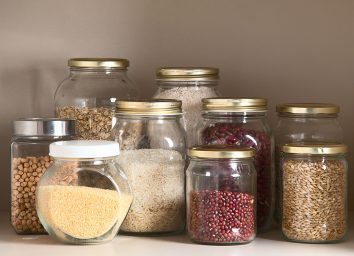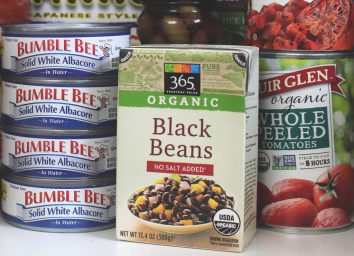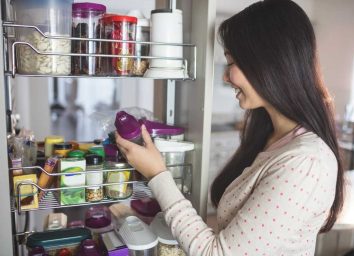7 Common Pantry Items Making You Gain Weight
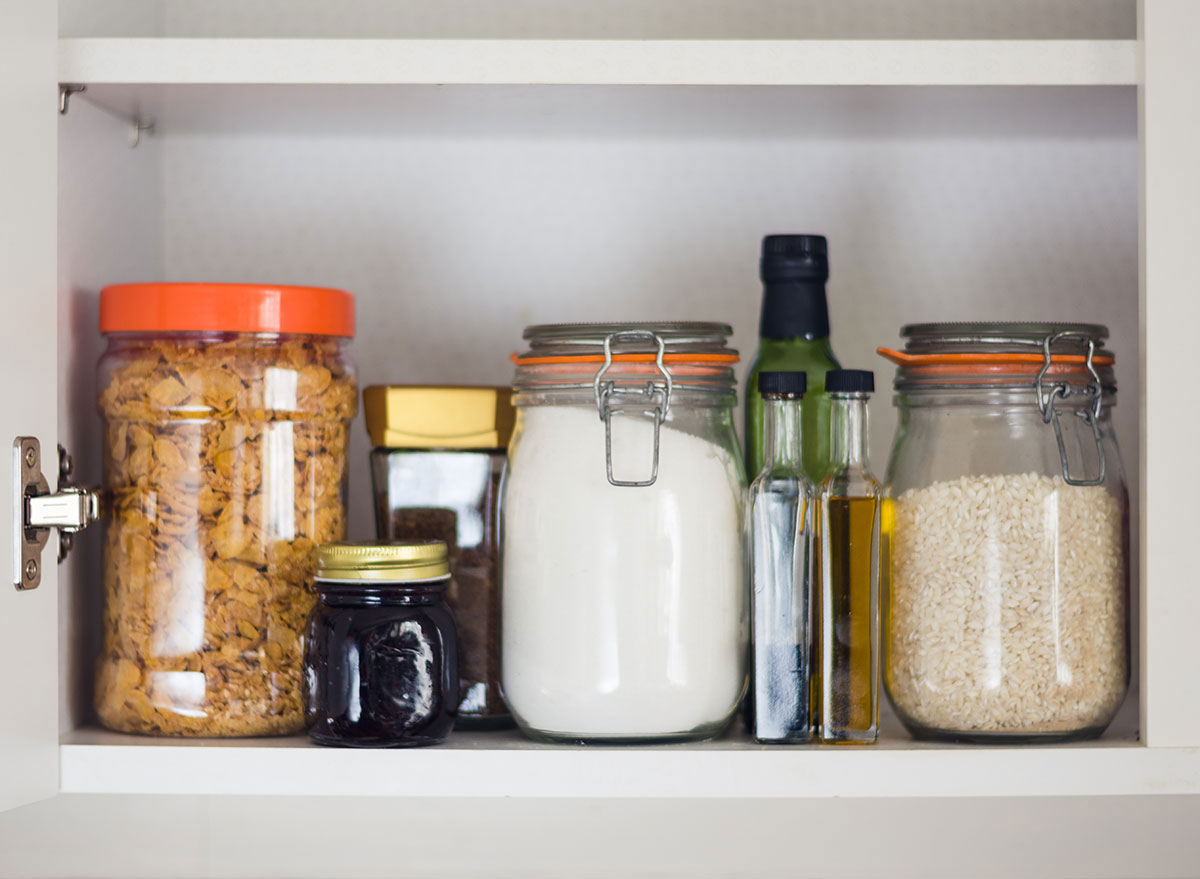
If you need to eat, and the fridge is bare, who you gonna call? Your pantry! It's those comforting doors we all turn to when we can no longer ignore our rumbling stomachs. But when you've gotten to the point where you're finally turning to the pantry in a fit of hanger, then you want to make sure the foods you have stocked (and those that are at arm's length) are going to give you the clean energy your body is craving—not those that zap the life right out of you.
Your pantry isn't just the place where we store snacks, it's also where we keep our meal building blocks: cooking staples, condiments, and convenience foods. It's a catch-all. When you think about it, the pantry is really the foundation of our entire diet. And if you want to build a healthy structure that will stand the test of time on top of that, you have to make sure that foundation is solid.
To lay a sturdy diet foundation, your first step should be to rid your pantry of the foods that aren't going to do your body any favors. We've identified the pantry foods that are taking up precious shelf space to only make you gain weight. Toss these foods in the trash, and for more on how to lose weight, you won't want to miss The Best Ways to Lose Belly Fat for Good, Say Doctors.
Canned Soup
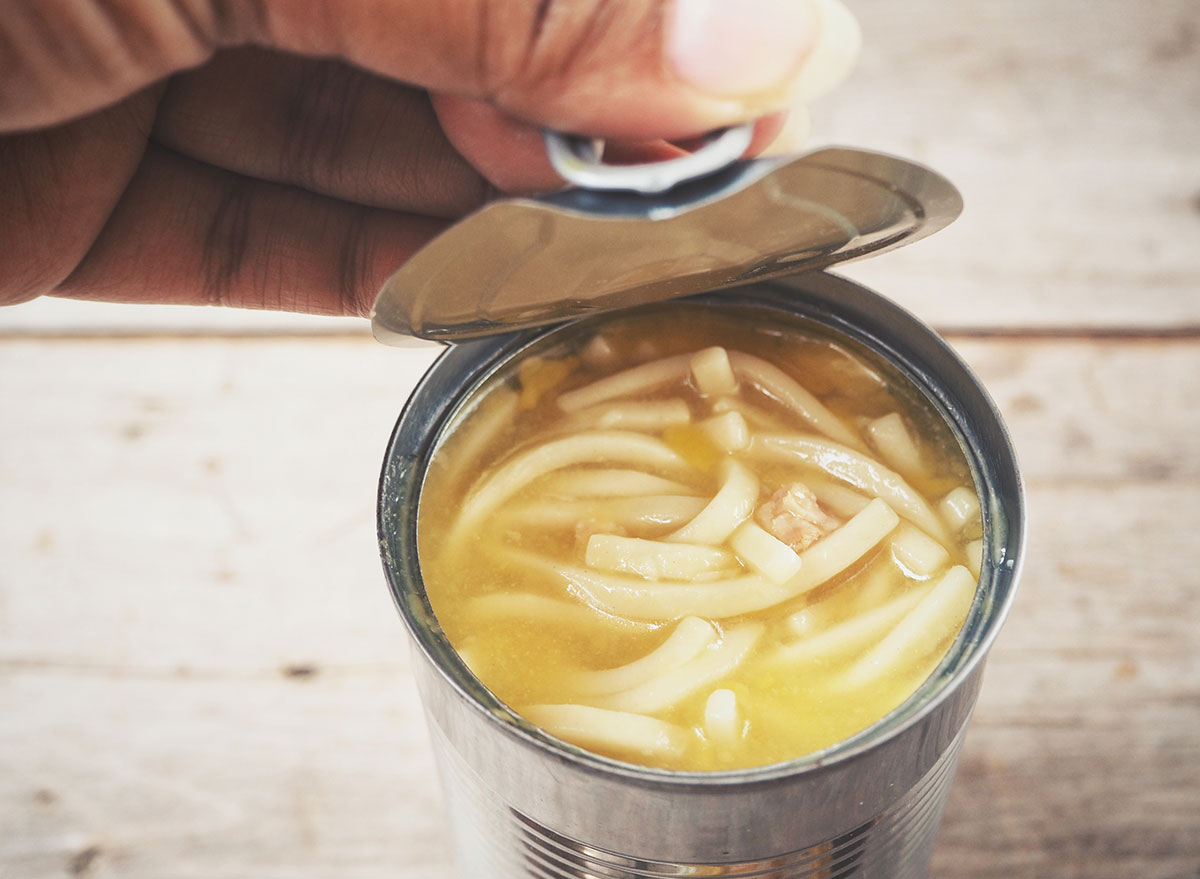
Canned soups are convenient and comforting. But they're also bloat-inducing and fattening due to their excessive sodium levels. Most of The Unhealthiest Chicken Noodle Soups on Shelves exceed 1,000 milligrams of sodium per serving, with Progresso Chicken Noodle delivering 1,510 milligrams per can — that's 66% of your daily value. A diet high in sodium won't just cause you to bloat or put you at risk of high blood pressure, it can also cause weight gain. Researches have found that a high salt intake is strongly associated with obesity, likely because you get thirsty after consuming high-salt foods. More often than not, people respond to that thirst by consuming high-calorie beverages, which leads to weight gain. Cutting back on high-sodium foods can help you lose both body fat and water weight. A study published in the journal Oncotarget found that when participants followed a low-salt diet for two months, they saw a reduction of body mass index. If you want to keep soup in your pantry, just make sure they're low-sodium soups.
Vegetable Soybean Oil
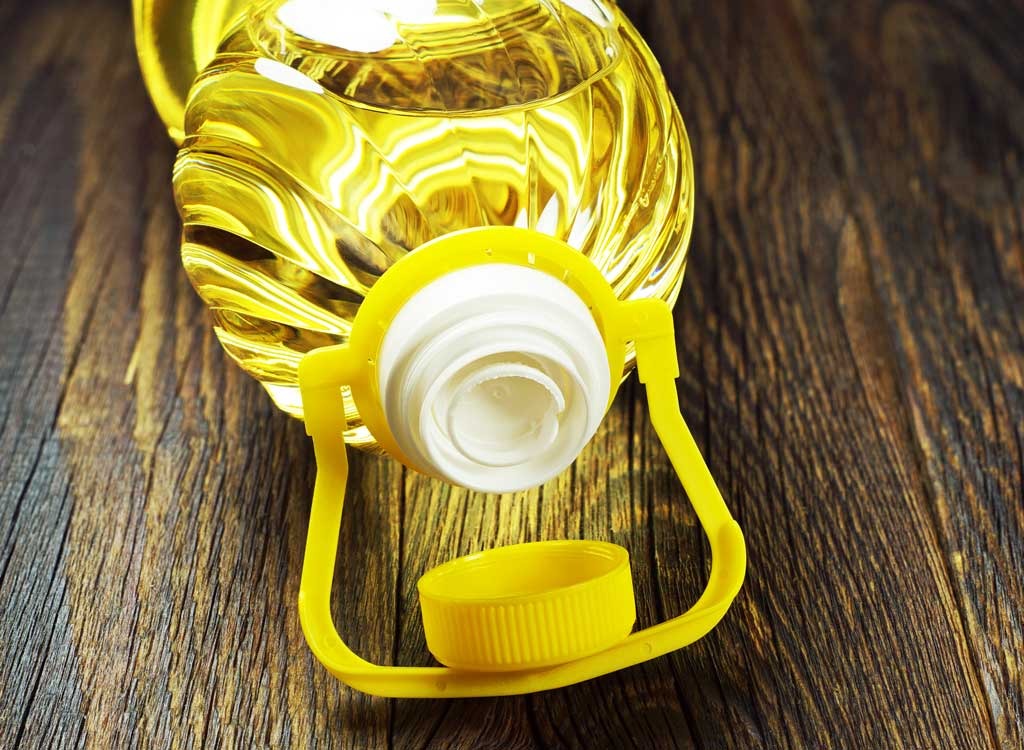
Soybean oil is the most widely consumed cooking oil in the U.S., according to the U.S. Department of Agriculture. Which is why it's troubling that studies have linked consumption of this highly-processed vegetable oil to obesity, diabetes, insulin resistance, and fatty liver. The animal study, published in the journal PLOS One, even found that a diet high in soybean oil is significantly more detrimental to metabolic health than a diet high in fructose. The same research team more recently found that soybean oil's detrimental effects extend beyond your waistline. In another animal study, the UC Riverside researchers found that consuming soybean oil could also affect neurological conditions like autism, Alzheimer's disease, anxiety, and depression, by disrupting the hypothalamus: a portion of the brain that regulates body weight via your metabolism, maintains body temperature and is critical for reproduction, physical growth, and your response to stress. Suffice to say, it's best that you substitute your soybean oil (which is often sold under the blanket guise of "Vegetable Oil") for healthier cooking oils, like olive oil. See: What Happens To Your Body When You Eat Olive Oil.
Cereal
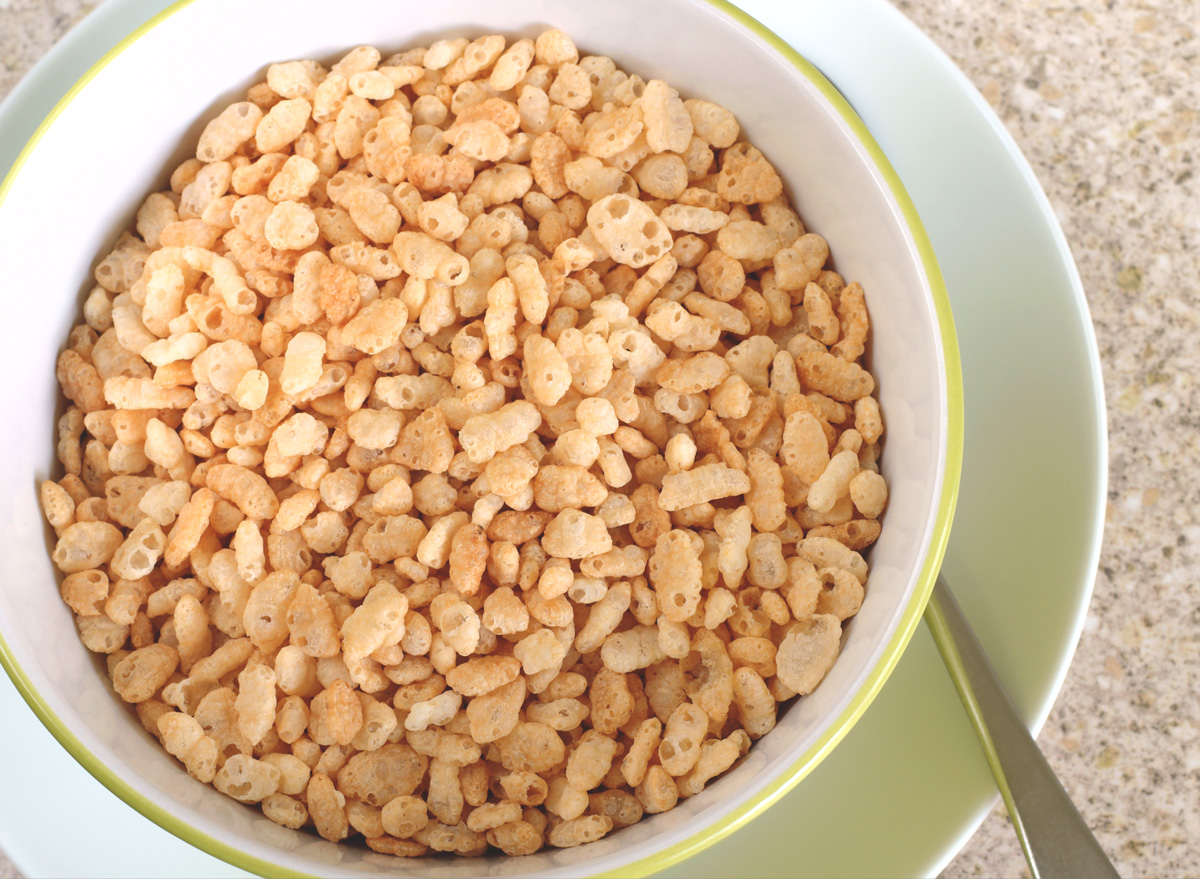
If you're trying to lose weight, there are better breakfasts than cereal. While there are more healthy cereal options than ever before, most cereal boxes are high in refined sugars and low in fiber or other satiating macronutrients like protein. Without these satisfying macros, you may end up spooning your way through a couple of bowls before even a semblance of feeling full. To lose weight, swap your cereal for a high-protein breakfast like eggs and toast. A study published in the European Journal of Nutrition demonstrated that a breakfast of eggs and toast provided greater fullness and led to significantly fewer calories consumed throughout the day than breakfast cereal.
Pancake Syrup
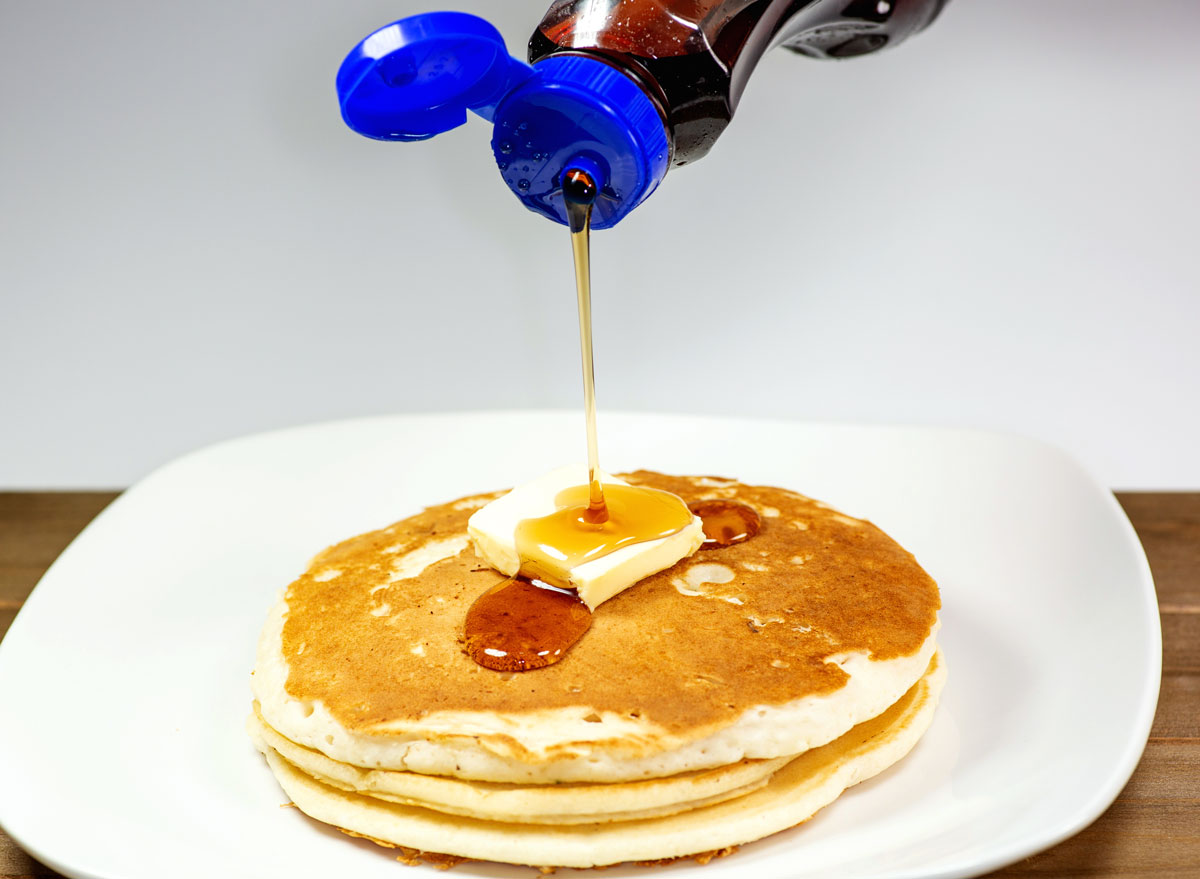
Don't get it twisted: there's a difference between pancake syrup and maple syrup. What you may think is maple syrup is really "pancake" syrup, meaning there's no sweet sap tapped from a maple tree in the bottle. Instead, these brands are just high fructose corn syrup, artificial flavors, and caramel color—all ingredients that have been connected to a slew of health issues, including weight gain. While a diet high in any type of sugar can cause weight gain, HFCS is particularly fattening. Princeton University researchers found that rats with access to high-fructose corn syrup gained significantly more weight than those with access to table sugar. In addition to causing weight gain, long-term consumption of high-fructose corn syrup also led to increases in body fat, belly fat, and a rise in circulating blood fats called triglycerides. It's time to leggo of your waffles, toss the syrup, and find a healthier breakfast option.
Cookies
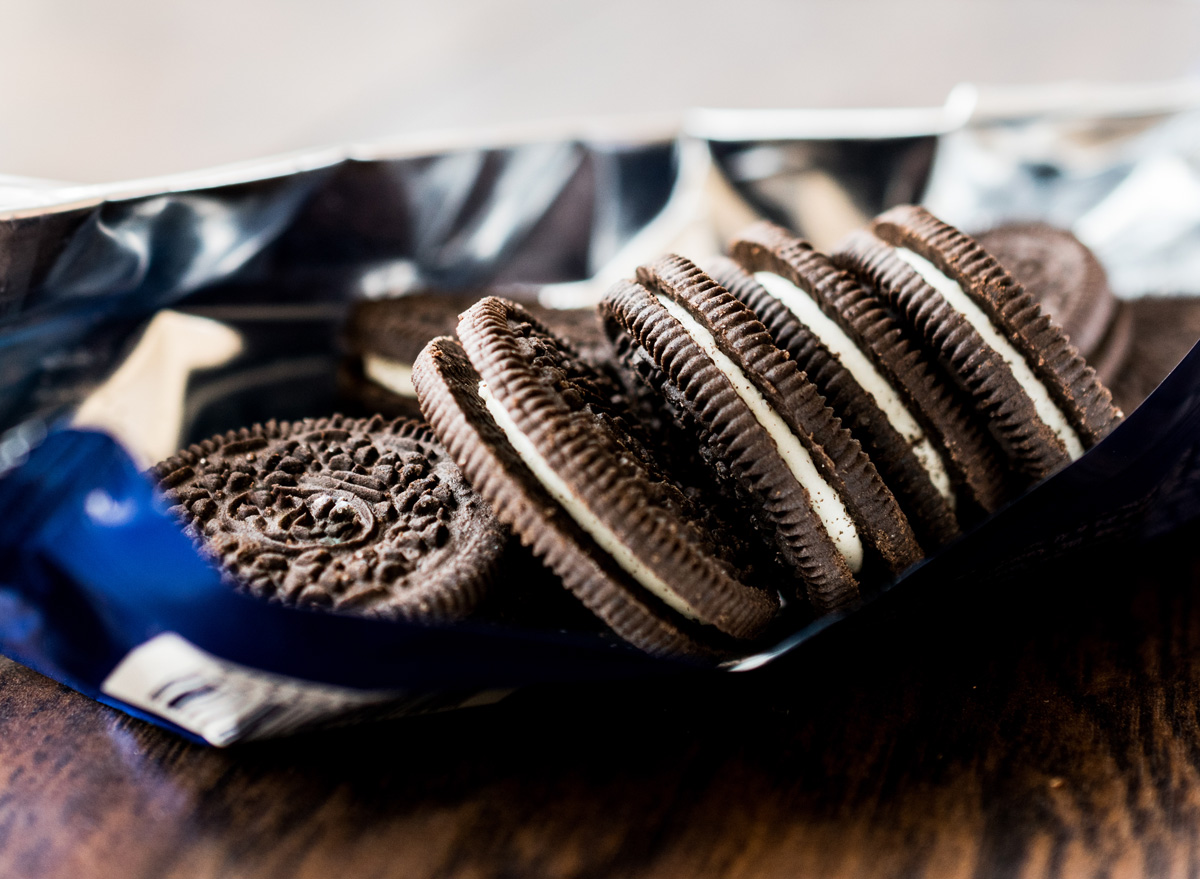
Whether they're in a jar or a sleeve, cookies can definitely cause weight gain. Cookies, cakes, and pies—also known as "sweets"—are the food category that contributes the most amount of calories to the American diet, according to a Nutrition Journal analysis. These sugary foods contribute an average of 7.2% of your daily calories, account for 15% of your added sugar intake, and provide little or no nutritional value. To lose weight, you probably should clear the cookies from your pantry. Sorry, that's the way the cookie crumbles.
Salad Dressing
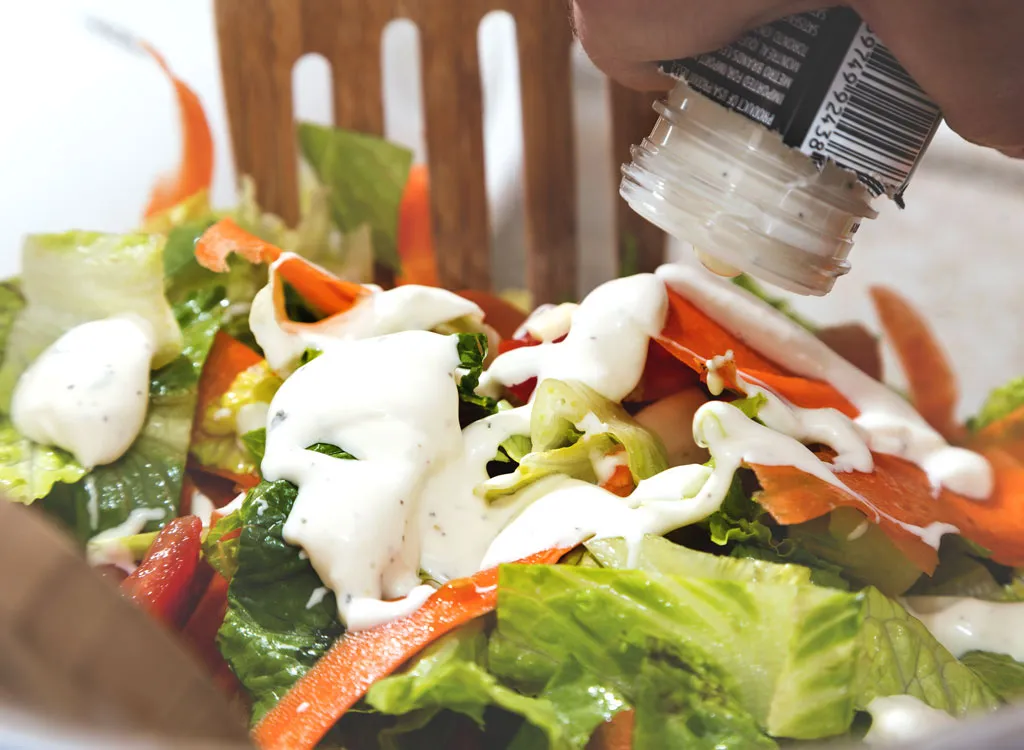
Good on you for having a salad—that's definitely a step in the right direction for weight loss. But you may not be doing yourself as big of favor as you'd expect if you're opting for store-bought salad dressings. These bottled dressings are often made with unhealthy fast like soybean oil (see what we said earlier), high levels of sodium, and added sugars like high-fructose corn syrup. While 10 grams of sugar in a serving of salad dressing seems like a lot, but not too much, consider that most people use more than the "serving size" of two tablespoons when eating salad. That's when the calories, added sugars, sodium, and fat add up. If you want to dress your salad for weight loss, you need just four things: olive oil, vinegar, salt, and pepper.
Chips
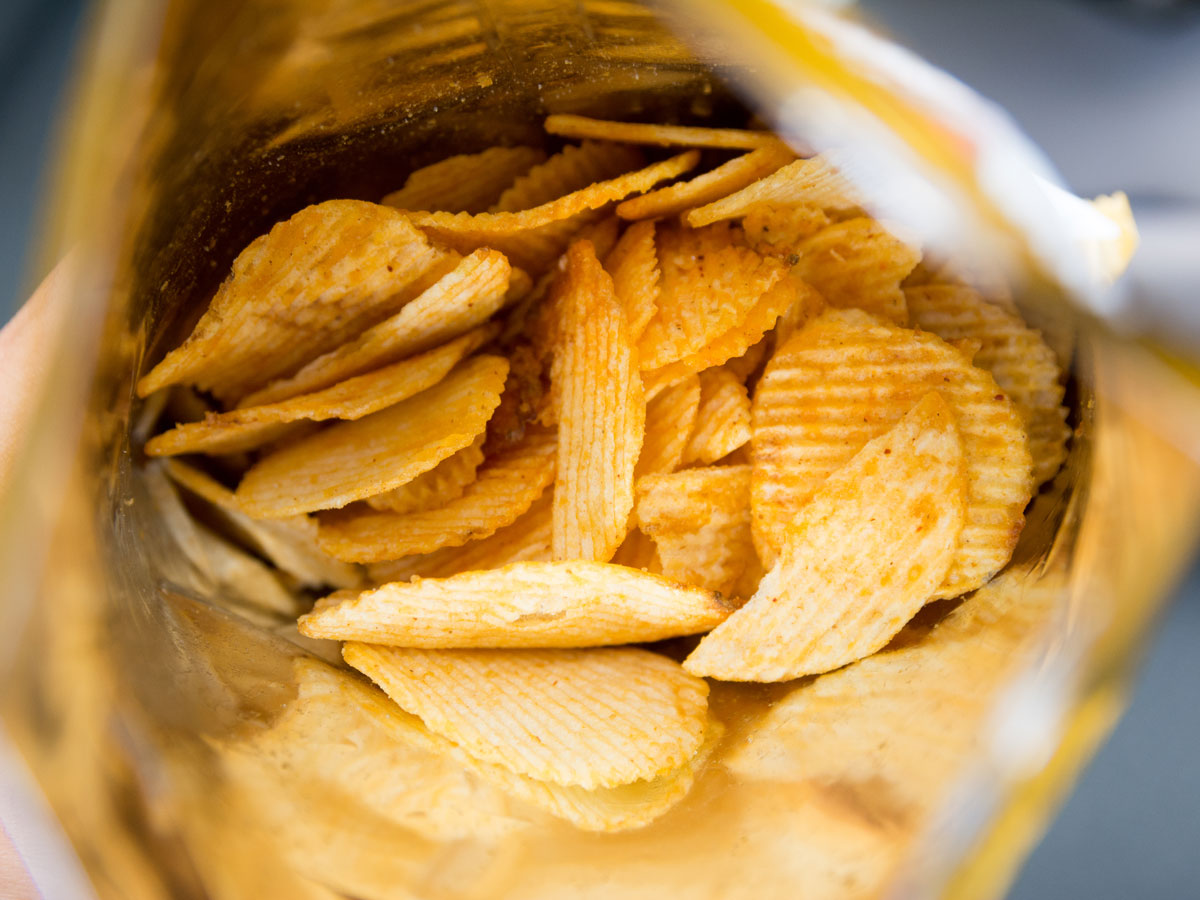
Put down the chips, and walk away from your pantry. Out of all the foods that cause weight gain—soda, ice cream, candy, pizza—potato chips are actually the worst offender. According to a study published in The New England Journal of Medicine, potato chips are the food most closely linked with weight gain, contributing an additional 1.69 pounds over a 4-year period. We can't say we're surprised after reading What Happens to Your Body When You Eat a Bag of Potato Chips.
